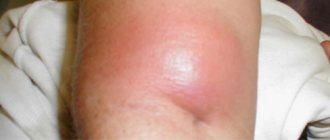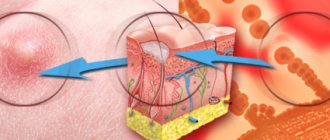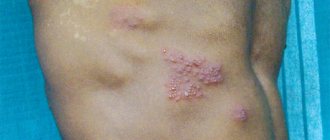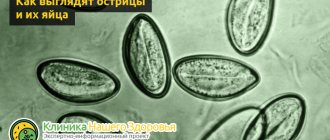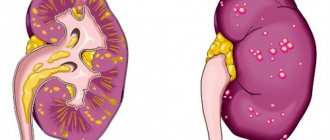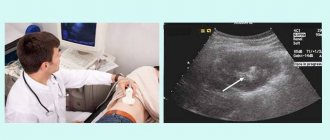Intestinal flu is a very dangerous disease in adults: symptoms and treatment may vary for each person. Let's figure out together what this unpleasant disease is. This disease is commonly called stomach or intestinal flu for a reason. The official name is rotavirus infection or gastroenteritis. As a rule, the causative agents are caliciviruses, astroviruses, as well as adenoviruses and noroviruses. All of them lead to a serious inflammatory process in the gastrointestinal tract.
Most often, children and older people get sick, since their immunity is much weaker than that of healthy adults. In young children, this disease can occur in a complicated form and is much more difficult to treat. Symptoms can be very obvious. But adults suffer from these viruses not so seriously. Many adults carry this disease on their feet without even noticing the signs, so they can become carriers of the infection. Intestinal flu, as a rule, remains in the acute stage for approximately one week. And after another week the person recovers completely, but throughout the entire course of the disease the patient remains infectious to other people.
Description of the pathology
When intestinal flu develops, the patient feels severe weakness, because the disease is accompanied by damage to internal organs. In medicine, there is another term - viral gastroenteritis (as doctors call intestinal flu). According to statistics, stomach flu ranks first among all infectious intestinal diseases. This is a relatively young disease that, just a few decades ago, doctors did not distinguish from other intestinal infections. But with the development of medicine, when rotavirus, which contributes to the development of stomach flu, was discovered in the mid-70s, this disease finally received its name.
Rotaviruses
The disease can affect the body of every person, regardless of his age or gender. But despite this, most often the symptoms of intestinal flu are diagnosed in one-year-old children. Adult patients become infected, usually while caring for infected children. If at first the disease was recorded only within the United States, now this disease can be found in almost all European countries.
The danger of intestinal flu
On a note! In children over 4 years of age, the immune system is already sufficiently developed to fight rotavirus infection. The same can be said about teenage children, who suffer from intestinal flu quite rarely, just like adults. But for young children, pathology is a serious danger.
Flu bacteria
You don't need to travel to exotic countries or eat unusual foods to catch the stomach flu. Infected water and food, poor hygiene, or dirty objects that the baby may put in his mouth can all lead to infection.
Symptoms of infection
The gateway to rotavirus infection is the mucous membrane of the digestive tract, mainly the small intestine. The pathogen damages the epithelium of the intestinal villi, which are involved in the production of intestinal juice.
As a result, the processes of food breakdown are disrupted. Diarrhea and dehydration of the body are explained by the fact that a large amount of disaccharides accumulate in the intestines, which attract water and electrolytes.
Intestinal flu can have a vague clinical picture, so it is often confused with influenza, acute respiratory infections, gastritis, gastroenteritis, dysbiosis or food poisoning.
Examination of a patient with suspected stomach flu should include the following methods:
- Questioning the patient. An important role for diagnosis is played by the combination of respiratory disorders and intoxication with intestinal disorders. It is necessary to clarify whether there was any contact with a patient with intestinal flu.
- When examining the patient, you can see a coated tongue, redness of the throat, and bloating. Increased intestinal motility and rumbling in the abdomen are also heard. When auscultating the lungs, hard breathing is noted, and there may be isolated dry rales.
- In a general blood test, an increase in the number of white blood cells, a shift in the leukocyte formula to the left, and an acceleration of erythrocyte sedimentation are observed.
- In a general urine test, protein, leukocytes, erythrocytes, and hyaline casts are determined.
- Stomach flu can be identified using polymerase chain reaction, passive hemagglutination test, complement fixation test, enzyme immunoassay and other modern methods.
- A slightly lengthy, but no less accurate virological method. Its essence is to seed material onto a cell culture or chicken embryo.
To cure intestinal flu, you should adhere to the following dietary principles:
- eat in small portions;
- nutrition should be balanced with a sufficient amount of vitamins and microelements;
- exclude milk and dairy products, including fermented milk;
- It is better to eat liquid broths and soups, rice;
- limit the amount of simple carbohydrates in the daily diet (sweets, potatoes, white bread, baked goods, sugar);
The first manifestations of the disease do not give a person any reason to suspect that rotavirus has entered the body. It all starts with weakness, drowsiness and apathy, loss of appetite and fever, that is, with typical symptoms of ARVI. Moreover, a person develops a cough, sore throat and difficulty swallowing, which may suggest the development of pharyngitis.
After about a day, the acute phase of the disease begins. The patient's temperature rises sharply and a fever begins, the lymph nodes enlarge and become painful. But the most pronounced symptoms of the disease are abdominal pain, nausea and diarrhea.
Pain due to rotavirus infection differs in many ways from ordinary pain. They appear in spasms for 3–5 minutes, causing a severe burning sensation in the abdomen, after which they disappear until the next attack. Moreover, with each passing hour the intervals between spasms become smaller.
The patient refuses to eat, he constantly feels sick, and any food that enters the body, including water, causes an attack of vomiting. But what’s even more dangerous is that the patient develops severe diarrhea. The stool becomes liquid and watery, cloudy white in color with a strong fetid odor, but without any mucus or blood.
Nausea and, especially, diarrhea are the most dangerous manifestations of intestinal flu, because with them fluid leaves the body. But in the case of rotavirus, diarrhea can appear from 5 to 30 times a day! As a result of this process, the patient rapidly develops dehydration. This is an extremely dangerous process, as a result of which a person’s skin becomes pale and dry, the blood thickens, the heartbeat quickens, convulsions appear, and consciousness begins to become confused.
Unlike rotavirus infection, when the intestines are damaged by norovirus, the temperature may remain normal, but nausea, vomiting and diarrhea are present, albeit in a less pronounced form. By the way, if we talk about intestinal flu in adults, then in a healthy person with a strong immune system, infection with rotavirus or norovirus can occur without diarrhea.
As noted above, the greatest danger to health is dehydration, and therefore any patient with gastroenteritis, first of all, needs to restore the water-salt balance and eliminate the symptoms of intoxication of the body in order to restore the functioning of the cardiovascular and urinary systems.
The key drug here is Regidron solution. 1 sachet of this product is diluted in a liter of warm boiled water and taken every half hour, 150–200 ml. In severe cases, the patient is hospitalized and given intravenous rehydration.
By the way, such a solution can be prepared at home. To do this, you need to take 700 ml of boiled water (or a weak chamomile decoction), add 300 ml of raisin decoction (carrots or dried apricots), and dilute 1 tsp in this solution. salt, ½ tsp. soda and 4–6 tsp. Sahara. It is advisable to start using this solution immediately after the first signs of vomiting appear, because fluid losses should be replenished within the first 6 hours.
In addition to means that restore the water-salt balance, the patient needs to remove infectious agents and the toxins they produce from the body. For this purpose, he is prescribed drugs from the group of sorbents, namely: Activated carbon, Smecta, Filtrum STI and Polysorb.
To relieve the patient from acute attacks of abdominal pain, he is prescribed antispasmodics - No-shpa, or analgesics - Analgin or Citramon.
In parallel with this, it is necessary to combat the symptoms of intestinal flu and, above all, diarrhea. For this purpose, doctors prescribe the drugs Enterol, Furazolidone, Enterofuril.
Antiviral drugs are also taken for intestinal flu. True, they are effective only at the very early stage of the disease, and during the development of the disease they allow you to avoid the addition of secondary infections. Most often, the patient is prescribed Cycloferon, Amiksin, and Ingavirin.
To restore the functioning of the digestive system, the patient is prescribed products containing digestive enzymes - Pancreatin, Creon or Mezim.
Separately, let's talk about elevated temperature with this infectious disease. If the temperature does not reach high levels (39°C or higher), the patient should refrain from taking antipyretics. The fact is that at temperatures above 38°C, rotavirus can lose its activity, and by knocking it down, a person prolongs the course of the disease. If the temperature rises too high, the patient may be prescribed Paracetamol.
https://www.youtube.com/watch?v=-Sk7Q5NM0vg
As for the recovery period, which will come after the unpleasant symptoms of the infection disappear, care must be taken to restore the intestinal microflora. Of the variety of probiotics, Linex, Bifidumbacterin, Hilak Forte and Bifiform are best suited for this.
Typically, a person who has had the intestinal flu acquires relative immunity, which means he is protected from infection for about a year. Moreover, each subsequent infection will be easier.
Causes
As noted earlier, the main source of the disease can be either a rotavirus carrier or an infected person . The habitat of the virus is the mucosal cells of various organs of the gastrointestinal tract. The virus itself leaves the infected patient’s body along with the feces. Rotavirus is transmitted by food - this is the most common way. The virus also enters the body if it is on clothing or household items. Consequently, pathology spreads quickly in crowded places, for example, in an institute or kindergarten. The first sign of stomach flu infection is acute diarrhea that cannot be stopped.
Pathogenesis of rotavirus infection
When infected with a virus, the functioning of the digestive system is disrupted, which causes disruptions in metabolic processes and diarrhea. The peculiarity of the disease is its rapid development, so the course of treatment is prescribed individually, taking into account various factors. As a rule, the patient is sent to the hospital.
Features of diagnosis and treatment
Disease prevention
A specific prevention of intestinal influenza is vaccination; two vaccines have been developed against rotavirus A, both contain a live, attenuated virus and have proven themselves to be an effective preventive measure.
Nonspecific prevention of intestinal flu consists of the following measures:
- isolation of patients with intestinal flu;
- avoiding contact with sick people, especially during pregnancy;
- regular hand washing after returning from the street, visiting the toilet, before eating;
- using proven quality products for food, avoiding eating expired products, thoroughly washing vegetables and fruits;
- use of high-quality drinking water;
- strengthening the immune system;
- rejection of bad habits.
Specific prevention of stomach flu is carried out by vaccination. Today, two vaccines against rotavirus infection are used, but, unfortunately, they are registered only in Europe and America.
Nonspecific prevention consists of the following measures:
- isolation of patients for intestinal flu;
- frequent hand washing with soap and running water, especially before eating;
- prepare dishes only from fresh and high-quality products with sufficient heat treatment;
- drink only high-quality water, preferably boiled;
- wash vegetables and fruits thoroughly;
- in an unfavorable situation, it is recommended to soak all products for 10 minutes in a 3% solution of acetic acid, then rinse with running water;
- Sanitary control must be carried out by employees of the sanitary-epidemiological station over the condition of public catering establishments and products in stores and markets.
The greatest spread of rotavirus infection is observed in the warm season. In this regard, all year round, but especially in spring and summer, carefully monitor your own hygiene, which means washing your hands every time you come into the house from outside and before every meal. Moreover, always wash fruits and vegetables before eating.
And further. If you notice the first signs of rotavirus infection in one of your loved ones, immediately isolate him from the rest of the household. Until recovery, he should be in a separate room and eat from cutlery specially allocated to him; it is advisable to place his personal hygiene products (towels, toothbrushes, etc.) separately. Take care of yourself and your loved ones!
Vaccination is provided as a specific prevention against intestinal flu. Nonspecific prevention consists of following the rules of personal hygiene. It is recommended to drink only purified and treated water (especially during outbreaks of respiratory viral infections), wash your hands after visiting public places, and eat only clean vegetables and fruits. When swimming in ponds and pools, avoid swallowing water.
Characteristic symptoms
The virus does not appear immediately after entering the body. This may take some time - from 10-12 hours to several days. But in most cases, symptoms of pathology appear in the first day after infection with rotavirus.
Symptoms of intestinal flu
Intestinal flu is accompanied by acute symptoms, including:
- general weakness of the body;
- decreased or complete lack of appetite;
- severe runny nose;
- inflammation of the throat mucosa;
- frequent diarrhea (5 to 12 times a day);
- bouts of vomiting;
- temperature increase.
Over time, symptoms of body intoxication and dehydration are added to the first signs of pathology. The patient becomes very lethargic and weak, and the color of the urine may change. As a rule, it becomes darker. In this case, the patient’s body is in serious danger, and if you do not consult a doctor in time, serious complications may arise. If signs of intestinal flu appear in a child, then at the first suspicious symptoms you need to go to the hospital. Only a doctor will be able to determine whether it is possible to leave the child at home for the period of treatment or whether this should be done in a hospital.
Frequent diarrhea occurs with intestinal flu
There are several forms of intestinal flu:
- light;
- average;
- heavy.
The patient's condition with a mild form of the disease worsens slightly. As a rule, he complains of heaviness and discomfort in the stomach. The urge to defecate occurs up to 5 times a day. The average form of the pathology is accompanied by an increase in body temperature, painful sensations in the abdomen, general weakness of the body and other symptoms that appear with a common cold. The patient can defecate 5 to 10 times a day, and the stool has a characteristic yellowish tint.
Increased body temperature
Severe stomach flu occurs quite rarely in people. In this case, the body temperature can rise to 40 degrees, the patient suffers from severe pain in the abdominal area. There is also frequent stool (10-12 times a day), which is most often foamy and watery. The skin becomes very loose, and urination becomes rare. In any case, you should immediately consult a doctor if you notice suspicious symptoms in yourself or your child. It is not recommended to self-medicate to avoid the pathology becoming severe.
Intestinal flu in adults, symptoms and treatment
You should not carry intestinal flu on your feet; in adults, the symptoms and treatment of the disease are interrelated. To avoid disturbances in water and salt balance, the patient must take one of the following medications :
- rehydron solution;
- hydrovit forte;
- trisol;
- trihydrone.
To relieve intoxication, adult patients are advised to take the drug Polysorb . It belongs to modern means that adsorb unwanted substances and toxins in the gastrointestinal tract. Within two to three minutes after administration, the drug begins to actively work.
If adult patients experience frequent bowel movements , then it is necessary to take the drug furozolidone . In some cases, the patient cannot do without taking digestive enzymes, for example, pancreatin . After recovery, to normalize digestion, adult patients need to “populate” the gastrointestinal tract with beneficial microorganisms. Here it is recommended to take Linex , Hilak forte . During the period of illness, if the patient is in satisfactory health, he should remain in semi-bed rest.
Diagnosis of intestinal flu
The essence of the diagnostic examination is for the doctor to be able to distinguish bacterial gastroenteritis from viral gastroenteritis, since there is a big difference in the treatment of these pathologies. Also, an equally important goal in diagnosis is to determine rotavirus infection, since this disease can easily be mistaken for food poisoning or a cold. But if with intestinal flu the body temperature rises, then with poisoning it does not.
Urine and blood analysis
To identify the pathogen, the doctor may order the following tests:
- stool analysis to detect rotavirus antigens;
- blood analysis;
- urine analysis, which can detect leukocyturia, hematuria and proteinuria.
On a note! Before taking laboratory tests, in particular stool tests, doctors recommend not taking any medications for at least 24 hours before collection. The same applies to administering enemas, laxatives and rectal suppositories. This may affect the analysis results.
Laboratory research
Diagnostics
Specific diagnosis of rotavirus infection is usually carried out by identifying the infectious agent in feces using enzyme immunoassay. In some cases, methods of polymerase chain reaction, indirect hemagglutination, complement fixation reaction, as well as electron microscopy, etc. are used. However, in many cases, the diagnosis is made on the basis of a characteristic clinical picture, taking into account the epidemic situation.
A general urine test reveals leukocyte-, erythrocyte- and proteinuria, and in some cases small amounts of hyaline casts. In the general blood test - an increase in the number of leukocytes, a shift in the leukocyte formula to the left, an increase in ESR.
Differential diagnosis is carried out with gastritis, gastroenteritis, enterocolitis of other etiologies, food poisoning. Intestinal flu in pregnant women is differentiated from early toxicosis.
Intestinal flu in adults with stable immunity manifests itself smoothly, in other categories of the population it is often similar to food poisoning, gastritis, dysbacteriosis and other diseases of the digestive tract.
Therefore, the diagnosis of rotavirus infection requires laboratory tests:
- general blood test to determine the level of leukocytes, ESR;
- general urine test to detect erythrocyturia, leukocyturia;
- PCR;
- passive hemagglutination;
- RIF - immunofluorescence reaction or Koons method;
- RSK - complement fixation reaction.
The list of diagnostic procedures may be smaller or larger, depending on the clinical picture of the disease. The last 4 analyzes are most often performed on a paid basis.
Treatment options
After the doctor makes a diagnosis, he will prescribe a course of therapy, which consists of stopping dehydration of the body and eliminating the symptoms of the pathology. First of all, you need to stop diarrhea and vomiting. Antidiarrheal and antiemetic medications will help with this. Since the treatment is complex, it consists of taking medications, following a special diet and using traditional medicine. Let's consider each of these methods separately.
Pharmacy drugs
When treating intestinal flu, various medications are used, differing from each other in composition and properties. Which remedy is suitable in a particular case is decided by the attending physician. Below are the most common medications prescribed by doctors.
Table. Drug treatment for stomach flu.
| Name of the drug, photo | Description |
| Enterosgel | The active component of this drug is methyl silicic acid. Enterosgel has detoxifying properties, thanks to which it is effective in the treatment of intestinal flu. Taken internally. |
| Polysorb | A cleansing drug that helps cleanse the patient’s body of various toxins. The peculiarity of this drug is that when it enters the body, it is not absorbed in the gastrointestinal tract. |
| Furazolidone | Another drug used in the treatment of stomach flu. Belongs to the group of nitrofurans and has antimicrobial and anti-inflammatory properties. Negatively affects gram-negative microorganisms. |
| Enterol | An effective probiotic drug, the effect of which is to increase the number of microorganisms that make up the intestinal microflora. The drug has a complex effect on the patient’s body, which distinguishes it from other probiotic medicines. |
| Linex | A combined product containing different types of lyophilized bacteria that are part of the normal intestinal microflora. The drug is used in medicine to restore and support intestinal microflora. Often used during recovery after the main course of therapy. |
Important! It is not recommended to take antibiotics when treating stomach flu. Such drugs will not only not help cope with the symptoms of the disease, but will also worsen the patient’s condition by destroying the remaining part of the intestinal microflora.
Nutrition
In parallel with taking medications, the patient must follow a therapeutic diet. Its essence is to add the following products to the diet:
- strong tea, preferably unsweetened;
- crackers;
- crumbly porridges cooked in water (rice, buckwheat, pearl barley, millet);
- dairy products.
Fruits and vegetables should be washed before eating
If you have intestinal flu, the patient should avoid eating the following foods:
- raw vegetables and fruits;
- sugar;
- Rye bread;
- whole milk;
- alcoholic products.
Prohibited Products
As a rule, after 4-5 days of treatment the patient notices a significant improvement. But this does not mean that he is immediately discharged, since the duration of the “quarantine” is 14 days, during which the patient is still considered infectious.
You also need to give up fast food
Folk remedies
As a complement to traditional treatment, many use proven traditional medicine recipes. Below are the most effective of them.
Table. Traditional medicine recipes for intestinal flu.
| Product name, photo | Application |
| Pine decoction | For cooking you will need pine buds. Pour 200 ml of boiling water over 10 g of kidneys and cook in a steam bath for 20 minutes. After this, let it sit for 1 hour. Strain the cooled product through cheesecloth and take 100 ml 2 times a day. It is advisable to take the decoction 20 minutes after eating. After a few days of treatment you will notice improvements. |
| Honey and lemon | Bee products have been used in folk medicine for many years. And this is not surprising, because they contain a lot of useful components that actively fight against various diseases. To get rid of the symptoms of intestinal flu, you need to mix 30 ml of lemon juice, 200 ml of clean water and 100 ml of honey in one bowl. Take the prepared product 100 ml 3 times a day. |
| Herbal infusion | To prepare the herbal mixture, you need to mix willow bark, chamomile, linden and rose hips in equal proportions. Then pour 200 ml of boiling water 1 tbsp. l. prepared collection and leave for 15 minutes. After infusion, strain the resulting solution through cheesecloth to get rid of plant residues. Take 50 ml 2-3 times a day, preferably before meals. |
| Elderberry decoction | Another recipe for a folk remedy used to treat stomach flu. Pour 300 ml of boiling water over 2 tbsp. l. black elderberry and cook for 15-20 minutes over low heat. After the product has cooled, add 1 tbsp. l. honey and mix all ingredients thoroughly. Take 500 ml of decoction after each meal. The duration of treatment is until symptoms are completely eliminated. |
| Raspberry juice | A very simple, but at the same time effective remedy for intestinal flu. To prepare fruit juice, pour 200 ml of clean cool water and 2-3 tsp. raspberry jam. Instead of raspberries, you can use jam from other berries, such as currants or strawberries. Drink fruit juice throughout the day. |
If you decide to be treated with folk remedies, this does not mean that you can refuse to take pharmaceutical drugs. It was previously mentioned that therapy for intestinal flu should be comprehensive . This is the only way to quickly achieve the desired result.
Treatment Options
No special treatment for rotavirus infection has yet been developed. Basically, it should be aimed at reducing the level of intoxication, as well as restoring water balance, since dehydration is likely due to vomiting and diarrhea. Rotavirus infection is mainly treated symptomatically.
- At the very beginning of treatment, it is necessary to carry out rehydration therapy. For this purpose, you can dissolve one sachet of Regidron in a liter of purified water. You need to drink it throughout the day. This remedy should be taken in case of severe vomiting and diarrhea. If vomiting and diarrhea are severe and do not go away, hospitalization may be required.
- It is important to adhere to a strict diet and completely avoid dairy products during treatment. Since they can contribute to the fact that harmful bacteria in the intestines begin to actively multiply.
- Various sorbents are also shown: Polysorb, as well as Smecta, Enterosgel, activated carbon.
- If severe diarrhea occurs, which is accompanied by fever, then doctors usually prescribe Enterofuril, Furazolidone, Enterol. These drugs should not be prescribed to yourself or your child.
- Various enzyme preparations also help with this disease: Mezim forte, Creon, Pancreatin.
- After the disease, the normal microflora in the intestines will have to be restored. The following drugs are used: Hilak forte, Bifidumbacterin, Linex.
Prevention measures
It is much easier to prevent the development of intestinal flu than to treat it. Therefore, it is necessary to engage in prevention, which consists of the rules of personal hygiene, or rather, their observance. According to statistics, infection most often enters the body with dirty food. Therefore, it is important to keep your hands clean at all times, especially before eating. The same goes for dirty utensils, such as spoons, forks or plates.
Wash your hands before eating
Since childhood, we are taught not to eat dirty fruits and vegetables, but to wash them thoroughly so that germs do not enter the body. But for some reason many people forget about this rule. Be sure to wash fruits and vegetables before eating, and if possible, disinfect them with boiling water. Because the virus that causes the stomach flu is highly contagious, the sick person must be isolated so that he or she cannot infect others.
Prevention of intestinal infections
Important! If you go with friends to the river to swim, then when swimming you also need to follow some rules. Now we are not talking about safety measures, but about preventing infection, so when bathing, do not allow dirty water to get into your mouth.
People may get the stomach flu several times throughout their lives, but it can be corrected. If the first time the patient is infected with the virus, timely and effective treatment is provided, then the immune system will eventually develop protection against repeated infections. This will make treatment easier in the future, and in some cases completely protect the body.
Etiology and pathogenesis
The causative agent is a rotavirus with an envelope and fragmented RNA, which consists of two strands of nucleotides.
This virus has high viability and can tolerate both low temperatures and heating up to 60°C. How is stomach flu transmitted? You can become infected with rotaviruses through airborne droplets through contact with a sick person, through consumption of infected products (especially low-quality milk) and through dirty hands (dietary transmission). It is also possible that there is a contact infection or infection from swimming in contaminated water. The source of rotaviruses can be the saliva of a sick person, his stool or vomit.
After the pathogen enters the body, the rate of development of the disease and its severity depend on the concentration of viruses, as well as the level of immunity. In some cases, infected people show no signs of the disease, but they are still a source of infection for others. Rotavirus infection can provoke minor epidemic outbreaks or be sporadic. In addition, it is characterized by seasonality, since it is most often recorded in the autumn-winter period.
Another feature of this disease is that it is most difficult for children to tolerate. In adults, the symptoms of infection can mimic a common acute respiratory viral infection, which is combined with signs of gastroenteritis. This is due to the fact that when viruses enter the body they penetrate the villi of the small intestine, destroying them. In this case, food cannot be digested, and water and electrolytes accumulate in the intestines, which causes characteristic symptoms (severe diarrhea and dehydration).
How can you get infected?
Why does intestinal flu occur and what is it? The causative agent of the disease is rotavirus. The causative agent of the disease was first discovered in 1973 in a biopsy of the small intestine in children with gastroenteritis. The main source of infection is a sick person or a virus carrier. Microbes, entering the human body, multiply in the cells of the mucous membrane of the digestive tract and are released into the environment along with feces. Virus shedding occurs immediately after infection.
The main route of infection is through eating food that is contaminated with the virus, is not well processed during preparation, and when basic rules of personal hygiene are ignored. This is also a “disease of dirty hands”, like most intestinal diseases. A good environment for the development of rotavirus infection is water and dairy products.
Most often, children from six months to 3 years old get sick with intestinal flu. Older children do not get sick often; they develop relatively stable immunity.
Prevention of infection
To avoid stomach flu, you should strengthen your body's defenses in all ways:
- Healthy food;
- exercise;
- walk a lot in the fresh air;
- eat a lot of vegetables and fruits;
- take vitamins during the cold season;
- harden.
To prevent any infectious diseases, it is better to avoid crowded places, public catering establishments, and wash your hands frequently. Parents should monitor their child’s condition and, if sick, not allow him to attend school or kindergarten (so as not to infect other team members).
When caring for a patient, you should limit his communication with other family members, provide an isolated space (separate room), frequently ventilate the house and carry out wet cleaning, provide the patient with his own dishes for individual use and washing.
The causative agent of the disease
Human rotavirus is considered the causative agent of intestinal influenza. The infection itself is transmitted through household objects and food. A person who has previously been ill acquires immunity, but in close contact with a sick person, reinfection can occur.
Within an hour after infection, rotavirus is detected in the small intestine.
In this case, the production of enzymes necessary for the breakdown of complex sugars occurs.
As a result, a large amount of undigested carbohydrates accumulates in the intestines, which causes diarrhea.
Providing first aid to children
If a child has been exposed to the disease, it is necessary to consult a doctor as soon as possible. A specialist will help determine the severity of the pathology and the possibility of treatment at home or the need for hospitalization. If vomiting occurs about 5 times, and the urge to defecate no more than 10 times during the day, then outpatient treatment is acceptable. If children (especially preschool age) suffer from a severe form of intestinal disease, then treatment is carried out only in a hospital setting.
Stomach flu is a serious illness that quickly exhausts your strength. Therefore, early treatment undertaken before the doctor arrives will greatly help alleviate the child’s general condition. To do this you should:
- Make sure that your baby constantly receives a warm drink with vitamins or at least boiled water.
- Constantly monitor body temperature. If necessary, use antipyretic drugs.
- Do not leave the child alone and carefully watch so that he does not choke on vomit. This especially applies to infants. To do this, slightly raise the end of the crib and turn the head to one side while sleeping.
- If the child does not refuse food, then he should be given only natural products. They should be boiled or steamed. It is preferable to limit yourself to pureed soups and rare porridges with water, pureed vegetables.
Such influenza in children requires a particularly careful diagnosis and timely prescribed therapy. In rare cases, the manifestations of stomach flu may mask another infectious pathology that requires immediate treatment. Delay can lead to serious complications and even death.
How is stomach flu diagnosed?
Most adults experience stomach flu attacks at home. For children, parents strive to show the doctor what is considered the correct approach. Symptoms of viral gastroenteritis can be confused with other intestinal infections, sometimes life-threatening. Excessive vomiting and diarrhea for 3 days, signs of dehydration are reasons to consult a doctor, relevant for adults and children.
The diagnosis is made based on the patient's complaints and medical history. To clarify the diagnosis, blood, urine, and stool tests are prescribed. Recently, it has become possible to distinguish rotavirus from bacterial intestinal infections at home using a special test sold in pharmacies.
Possible complications of the disorder
If treatment for intestinal flu is started in a timely manner, then usually specific complications are not observed. Sometimes the bacterial flora that lives in the intestines can join in - this aggravates the course of the disease.
In 1978, it was found that rotavirus can cause not only local infection, limited to damage to the mucous membrane of the digestive system. This is also a real risk of generalization, leading to:
- Convulsive syndrome;
- Intestinal intussusception (volvulus);
- Skin erythema;
- Heart or liver failure.
The consequences of intestinal flu occur only if treatment is started too late. Then the bacterial form actively develops, leading to dysbacteriosis and other troubles.
If a patient with congenital immunodeficiency (or acquired form) exhibits the first symptoms of a deviation, it is necessary to urgently consult a doctor. In severe cases, complications of stomach flu include seizures, skin erythema, volvulus, and heart/liver failure.
Intestinal flu can be complicated by dehydration and the complications caused by it - heart and kidney failure.
Why do children get sick more often than adults?
The fact that intestinal flu occurs much more often in children than in adults is a consequence of the peculiarity of the children's body, which consists in a low level of acidity of gastric juice. The body of adults is to some extent protected from rotaviruses due to higher acidity, as well as a sufficient amount of IgA immunoglobulin production.
- Children’s habit of putting toys and other objects in their mouth also plays a certain role.
Antiviral drugs are powerless against rotavirus. Stomach flu in children can be very dangerous. The appearance of diarrhea and frequent vomiting should be a reason to immediately contact your pediatrician. An important point in protecting children from infection is prevention.
About the pathogen: routes of transmission and harm to the body
Rotaviruses are a family of RNA viruses, Reoviridae. They got their name because of their resemblance to a wheel (in Latin, wheel is rota). The most common is rotavirus A, which causes disease in 25 million people annually, with 3% of them being fatal.
Infection occurs by contact or airborne droplets from a sick person. Infection in adults occurs both in the form of isolated cases (for example, in a family) and in the form of outbreaks (epidemics in groups). Rotavirus is well preserved in the environment on objects and the human body, and is also resistant to temperature fluctuations.
Once in the body, rotavirus easily passes through the stomach and settles in the small intestine, where it attaches to the villi of the mucous membrane. Indirectly through endotoxin and directly, the virus causes severe damage to the intestinal villous epithelium, disrupting its barrier and transport function. The pathogenesis of the disease consists of several important points:
- Damage and death of enterocytes results in impaired absorption of nutrients in the intestine. There is a deficiency of microelements, glucose, and vitamins.
- A large amount of the virus destroys beneficial lacto- and bifidobacteria, which weakens local immunity.
- The toxin interferes with the reverse reabsorption of water, leading to diarrhea and further dehydration of the body with loss of salts.
- Absorbed into the bloodstream, the protein toxin has a systemic effect on all organs and tissues (viral intoxication).
- The innervation system of the intestinal and gastric walls is damaged, which is manifested by severe spasms of smooth muscles (pain, vomiting, diarrhea).
We recommend reading:
Details about salmonellosis: pathogen, transmission routes, signs and treatment
According to some data, rotavirus causes lactase deficiency (an enzyme that breaks down milk sugar - lactose), which persists for several weeks after the infection.
Diet for illness
For intestinal flu, it is recommended to exclude a number of foods from the diet. First of all, these are all dairy products, which contribute to the rapid proliferation of bacteria. Moreover, secondary lactase deficiency may occur due to rotavirus.
Juices, fruits and foods containing a lot of carbohydrates are also prohibited. Such products cause fermentation and provoke increased diarrhea.
Patients are recommended to consume chicken broth and rice cooked in water. To avoid nausea and vomiting , you should eat small portions. Drinking plenty of fluids is also recommended.
It is known that a person can get intestinal flu several times. Despite this, the first time treatment should be as effective as possible, which contributes to the development of stable immunity. As a result, if you are re-infected, the body will cope with the disease much easier.
Video advice from doctors
Intestinal flu, or, as it is also called, stomach flu, is a common disease that affects the gastrointestinal tract. The pathology received this name because the symptoms are similar to those of the flu (fever, general weakness and other manifestations of intoxication of the body). The development of stomach flu is accompanied by symptoms such as nausea, vomiting, changes in the appearance of stool, diarrhea and others. More details about how to treat intestinal flu will be discussed in this article.
How to treat intestinal flu
Preventive actions
In the European Union countries, as well as in the United States of America, intestinal influenza is prevented through vaccination.
In other countries, in particular in Russia, standard preventive measures are carried out aimed at preventing viruses from entering the human body:
- personal hygiene must be observed;
- fruits and vegetables must be washed thoroughly;
- dairy and fermented milk products should be consumed only fresh;
- systematic sanitary control must be carried out in public catering places, markets and retail outlets;
- patients are isolated.
FAQ
Question: Do I need to take antibiotics for stomach flu?
Answer: No. Antibiotics treat systemic or intestinal bacterial infections. If the pathology is of viral origin, antibiotics will not have any effect and can even provoke extremely undesirable effects (dysbacteriosis, increased diarrhea, colitis, fungal infections of the intestines). Such drugs should be used as prescribed by a doctor, only if viral gastroenteritis provokes bacterial complications.
Question: How long should you stick to the diet after illness?
Answer: A gentle diet should be followed during acute symptoms of the disease, as well as for a week after their complete disappearance. The patient should not overeat or improve his health with strong drinks. After an infection, the gastrointestinal tract is very sensitive and can react by increasing the inflammatory process in response to the consumption of alcohol, spices, and sour foods. It is also important to avoid significant temperature fluctuations (drinking and eating cold or hot foods or drinks). Temperature irritation provokes increased secretion of digestive juices and increases the load on the gastrointestinal tract as a whole.
Question: How important is drug therapy?
Answer: Stomach flu goes away on its own (if there are no significant disruptions in the immune system). Drug treatment is aimed only at relieving symptoms and does not affect the time of development of the disease. If the symptom does not significantly affect the patient’s well-being, you can do without medication. In this case, you should concentrate on a calm daily routine and gentle nutrition to ensure optimal conditions for the body to recover.
What are the symptoms of this flu?
The disease is very acute. The first signs of intestinal flu are nausea and vomiting, diarrhea, and abdominal pain. There is no blood or mucus in the stool. In some cases, there is a strong increase in temperature.
The main feature of intestinal flu is weakness and dehydration . Due to significant fluid loss, exicosis may occur.
Its signs include dry mucous membranes and skin, constant strong thirst, and rare urination. This condition is very dangerous for young children.
Diet and regimen
For patients diagnosed with intestinal flu, it is important to observe bed rest during the acute stage of the disease, as well as other recommendations to speed up recovery. These include:
- regular ventilation of the room in which the patient is located;
- daily wet cleaning using disinfectants;
- limiting contact with other family members;
- using boiling water to wash items worn by an infected person;
- separate storage of personal hygiene items for the patient.
An equally important component of successful treatment is a special diet. Fasting is allowed only on the first day - at this time the patient should be given as much liquid as possible, mostly salty.
Starting from the second day, you should add vegetable purees and porridges prepared without milk to your diet. On the third day, the menu should include the following products:
- fermented milk products (yogurt, kefir, fermented baked milk);
- boiled vegetables;
- boiled chicken (breast) or fish - no more than 50 g per day;
- decoction of rice or oats.
All dishes should be prepared only using dietary methods (boiling, baking, stewing).
What is strictly prohibited for intestinal flu:
- fried foods;
- smoked meats, marinades;
- sauces, spices, herbs;
- confectionery, sugar;
- bread, buns, pastries;
- pork;
- milk;
- fruits.
The therapeutic diet for intestinal flu should last until complete recovery, as well as for two weeks after - this is necessary to normalize the functioning of the digestive organs and reduce the load on the stomach and intestines.
Stomach flu is a common illness that can occur at any age. With proper and timely treatment, the disease does not pose a danger, but it is better to prevent its occurrence. For prevention, it is important to strengthen the immune system, eat a healthy and varied diet, monitor body hygiene and not use other people’s hygiene products.
For more information about the causes, symptoms and treatment of intestinal flu, watch the video:
Rate how helpful this article was
0 people voted, average rating 0
Did you like the article? Save it to your wall so you don’t lose it!




